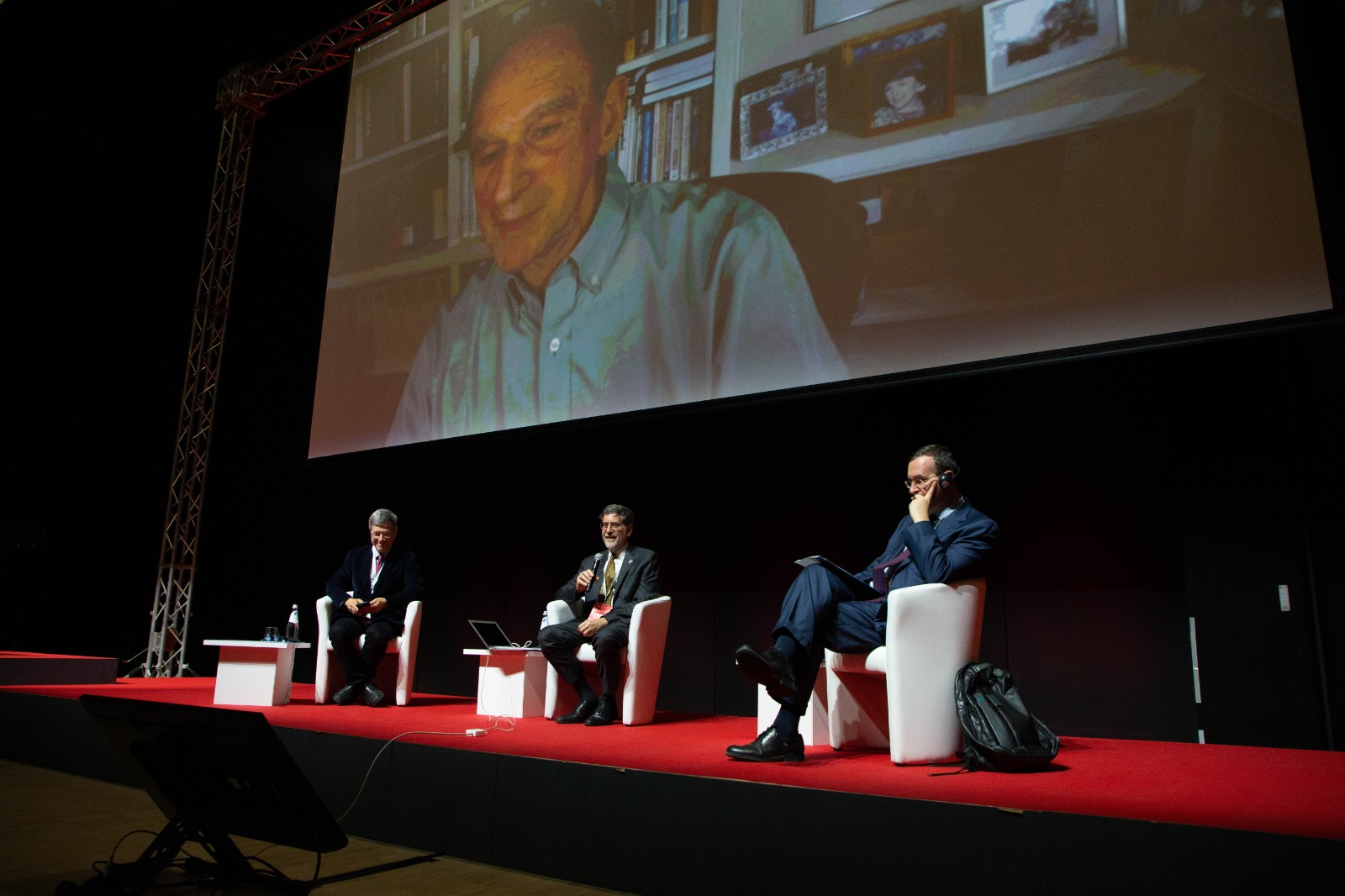news
In the face of wars, it is time for diplomacy. Sixty years after the Cuban missile crisis, let us not resign ourselves to the nuclear threat
October 24 2022 - ROME, ITALY
#peaceispossible
"Sixty years after the Cuban Missile Crisis, the lesson we are left with is that we need diplomacy". So said Jeffrey D. Sachs, Special Advisor to the UN Secretary-General. For Martin Hellman, professor at Stanford University, "the atomic bomb is a warning that must push us to fear and fight all wars, because conflicts are like Russian roulette: if we continue to pull the trigger, sooner or later the shot will go off, capable of destroying us all”.
Adriano Roccucci, professor of contemporary history at Roma Tre, recounted the Cuban missile crisis and John XXIII's intervention to open a diplomatic channel between the United States and the Soviet Union. "To get out of the dead end of war, channels of dialogue are needed, which can be official, but also informal, facilitated by exponents of civil society or singular actors of the international community. In this context, the role of Pope Roncalli, not always sufficiently recognised by historians, must be re-evaluated".
Pierbattista Pizzaballa, Latin Patriarchate of Jerusalem, invites not to resign oneself to the dire scenarios: "There is a river of beautiful humanity that refuses to believe that the brother is an enemy". For this reason, when we go beyond stereotypes, the Holy Land can also be a model of coexistence, fighting against all forms of division.
Emilce Cuda, theologian and secretary of the Pontifical Commission for Latin America, notes that "people are martyred for the goods they have. Syria and Ukraine are martyred. Let us pay attention to the victims of violence and listen to them with an open heart".
The voice of religions is influential in the search for negotiating avenues when facing the war in Ukraine. For Abdulwahhab Ahmed Al-Taha Al-Sammaree (Spokesman of the Fiqh Council of Senior Scholars, Iraq) it is possible to return to a human alliance that protects the planet and puts an end to the experimentation of all weapons. Religions are called to this too at a time when war is burning everything, as is happening in Ukraine, with the destruction of lives and the damage to the environment and food security. The world "is on the verge of famine, desertification with sandstorms, energy prices are rising".
The Orthodox Metropolitan Ioan, Patriarchate of Romania, reads contemporary events as a poisoned fruit of technocracy. This poisoned fruit "reduces man to number, to atom, depersonalizes him by throwing him in a material way. We can come out of this atomized world through prayer, whose fruits are poured out on all aspects of life in the contemporary desert. Through prayer we seek the sick, the poor, migrants and ourselves dispersed in the atomized world. Where there is no peace, there is blood and humiliation".
Jaron Engelmayer, chief rabbi of Vienna, explains that "since the war broke out in Ukraine last February, a prayer for peace has been introduced in many Jewish communities. We pray that everyone can rest without having to wake up startled. The theme of peace is very much emphasized in prayer: all prayers are 'consumed' in it ".
